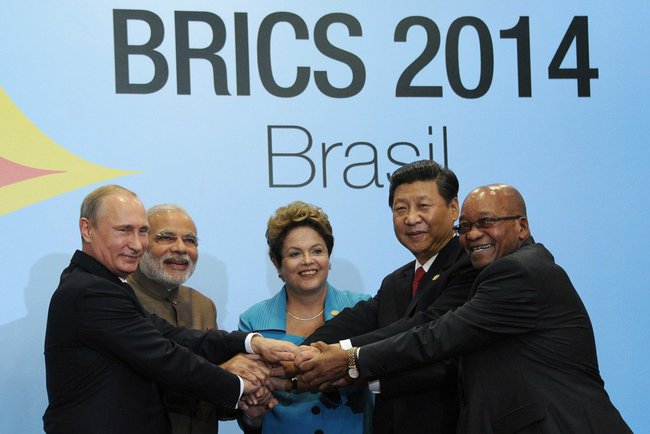BRICS: Seeking a place at the global investment table
Five major emerging economies band together in an effort to crack western dominance in the investment world.
BRICS, the economic consortium of Brazil, Russia, India, China and South Africa, plans to take another step this year in its effort to crack western dominance in the investment world.
The coalition of five major emerging economies plans to launch its own ratings agency later this year, saying that the ratings of three major Western agencies are biased against emerging economies like theirs. They contend the “Big Three” ratings agencies sometimes make decisions based on geopolitics rather than investment-worthiness.
The three agencies – Moody’s, Fitch Ratings, and Standard & Poor’s – together represent 90 percent of the global market of credit ratings and generally command high respect.
Credit ratings lowered
Russia and China in particular support the plan. BRICS discussions about forming a rating agency heated up after the three big Western agencies lowered Russia’s creditworthiness in the midst of the crisis in Ukraine. China has also seen its ratings lowered by the western agencies as its economy has slowed.
At the beginning of June, all three agencies rated Russia’s economic outlook as “negative.” China’s ratings are generally higher than Russia’s, but two agencies gave China a “negative” outlook while Fitch said the country’s outlook was “stable.”
Evgeny Stanislavov, director of the Russian Foreign Ministry’s Department of Economic Cooperation, said claims by the rating agencies that Russia’s economy is in bad shape are wrong and part of a “well-orchestrated anti-Russian campaign.”
Agency may launch in 2016
The new BRICS rating agency would provide assessments of credit risk in the member countries as well as in other emerging or developing economies.
A committee is at work on the technical aspects of creating the new agency, which could be launched at an October BRICS summit scheduled in New Delhi.
One issue is the independence or perceived independence of an agency created and sponsored by a coalition of governments.
“A rating agency has to be fully independent from the standpoint of the governments. A rating agency can claim to be independent only to some extent if it is sponsored by government,” said Otaviano Canuto, a former World Bank advisor who is now Brazil’s representative to the International Monetary Fund.
BRICS bank approves first loans
The BRICS nations, who also believe they are under represented in the International Monetary Fund and the World Bank, launched their own joint development bank and reserve fund in July 2015 with the goal of encouraging more investment in infrastructure projects in their countries.
The BRICS New Development Bank in April approved its first series of loans, $811 million for renewable energy projects in member nations Brazil, China, India and South Africa.
A bank spokesperson said more projects are under consideration, including proposals from the fifth member nation, Russia.
The bank awarded $300 million to Brazil, $250 million to India, $180 million to South Africa and $81 million to China. According to estimates by the bank, the renewable energy projects together will reduce carbon emissions by four tons a year and create a total capacity of 2.37 megawatts.
The New Development Bank, launched in July 2015 and headquartered in Shanghai, had an initial capitalization of $100 billion to fund infrastructure projects in emerging economies.
Major emerging economies
The five BRICS countries are large emerging economies that account for nearly half of the world population and about more than one-fifth of its gross domestic product.
Three of the BRICS countries are among the top ten economies in the world. China, with gross domestic product estimated at $11 trillion in 2015, is the second largest economy in the world after the United States, with a gross domestic product estimated at $18 trillion. India with $2.1 trillion in GDP is seventh and Brazil with $1.8 trillion is ninth, according to the World Bank. Russia is 12th at $1.3 trillion and South Africa is 33rd with $330 billion in gross domestic product.
Each of the five countries has faced economic challenges in recent years. Perhaps hardest hit has been Russia, which faces ongoing sanctions following its annexation of Crimea.
















There are no comments
Add yours